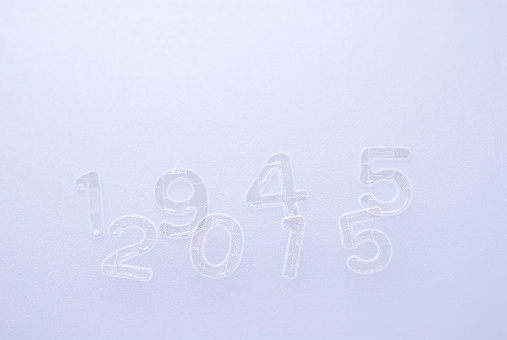This month in history: VJ Day
 The war in Europe ended in May 1945, but continued in the Far East until Japan surrendered
on 15 August 1945, after devastating atomic bombs were dropped on Hiroshima and Nagasaki, and
the USSR invaded Manchuria.
The war in Europe ended in May 1945, but continued in the Far East until Japan surrendered
on 15 August 1945, after devastating atomic bombs were dropped on Hiroshima and Nagasaki, and
the USSR invaded Manchuria.
Emperor Hirohito announced Japan’s acceptance of the terms of the Potsdam Declaration of 26 July 1945, which called for the unconditional surrender of Japanese armed forces.
In Britain, Prime Minister Clement Atlee (1st Earl, KG, OM) confirmed the news that the war was over in a midnight broadcast, stating that: "The last of our enemies is laid low."
To mark the end of 6 long years of fighting, 15 August came to be known as ‘Victory over Japan Day’ for the Allied nations. In Britain, huge crowds gathered to cheer King George VI and the Queen en route to Westminster for the opening of parliament on the same day. A two-day public holiday was announced. From Times Square to Piccadilly Circus, celebrations broke out – an end to the fighting had finally arrived.
The formal surrender in Tokyo Bay and the signing of a surrender document by Japanese officials didn’t take place until 2 September 1945 (the date of VJ Day in the US). President Truman stated that, after the bombing of Nagasaki, ‘I realize the tragic significance of the atomic bomb.’
Feelings towards the nuclear destruction of Hiroshima and Nagasaki and the consequent civilian casualties has over time tempered the way in which VJ day is commemorated, being referred to by President Clinton as the ‘End of the Pacific War’.
A supplement to the London Gazette, 13 April 1951, contains a detailed despatch from Air Chief Marshal Sir Keith Park (GCB, KBE, MC, DFC), Allied commander-in-chief, South East Asia, regarding ‘the overthrow of Japanese land forces during the closing stages of the war in South East Asia’. On the surrender of Japan, and the use of atomic weapons:
‘Throughout the war, research in Britain, America and Germany had pursued the possibility of harnessing to war the potentialities of atomic energy, and the first atomic bombs were dropped with devastating effect on metropolitan Japan at Hiroshima and Nagasaki on 5 and 9 August, 1945, respectively. Adding further to the plight of Japan was the declaration of war by Russia on 8th August, followed by Soviet Forces crossing the Manchurian and Korean borders.
'322. From these momentous events, and faced with certain Allied invasion of the homeland, for which air power had paved the way, Japan could see no escape. The end came in the form of surrender, which was broadcast from Tokio on 10 August, and the acceptance of the Allied terms on 14th August.’ (Gazette supplement 39202)
Honours and awards were published in The Gazette for actions in the Far East soon after. Admiral Rawlings (GBE, KCB), who commanded British Task Force 57 in the Pacific from 1944, was awarded a knighthood, ‘for good services rendered whilst in command of the British Task Force operating in Japanese waters’ (Gazette supplement 37251). Others followed for ‘determination and address in air attacks on targets in Japan’ (Gazette supplement 37232), ‘determination and eagerness… an inspiration and example to others, in air attacks on targets in Japan’, and ‘gallantry in air attacks over Tokio on the 15th August, 1945’ (Gazette supplement 37260).
In 2015, memorial events in London, attended by veterans of the Far East campaign, former prisoners of war and civilian internees and their families, will mark the 70-year anniversary and pay tribute to all those who served in the armed forces.
See the Royal British Legion and MoD VJ Day commemorative events
